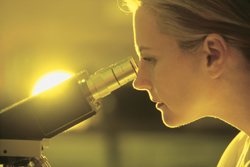Mapping the present for a better life sciences future
The 'Survey of the university career of female scientists at life sciences versus technical universities' (Unicafe) project took an innovative approach to generating more knowledge on the career patterns of female scientists at universities. Team members from seven universities in six European countries actively mapped the situation of female researchers in engineering and life sciences. Work focused on such issues as gender differences in research careers, access to funding and work-life balance. A survey was administered to PhD students, researchers and decision makers to collect detailed statistics. Interviews were also conducted with women researchers who, despite various difficulties, had succeeded in realising a career in science. Unicafe mapped good practices as well bad ones to determine the factors playing a role in negatively impacting the career of female researchers. Project partners prepared a synthesis report integrating significant findings and comparing results. The outcomes were based on a comparison between universities and between the two scientific fields of engineering and life sciences. The work resulted in the formulation of policy recommendations related to actions universities can take to implement gender mainstreaming. University reports and the final synthesis report were distributed to universities, decision-makers and policymakers throughout Europe and an international conference was organised to share survey results. The comparative mapping exercise produced information on the universities' status quo in the countries of participating universities, with conclusions highlighting the obstacles faced by women in various scientific fields and countries. Unicafe outcomes offered new methodology and findings that have the potential to help university actors to implement a more effective human resources strategy.



